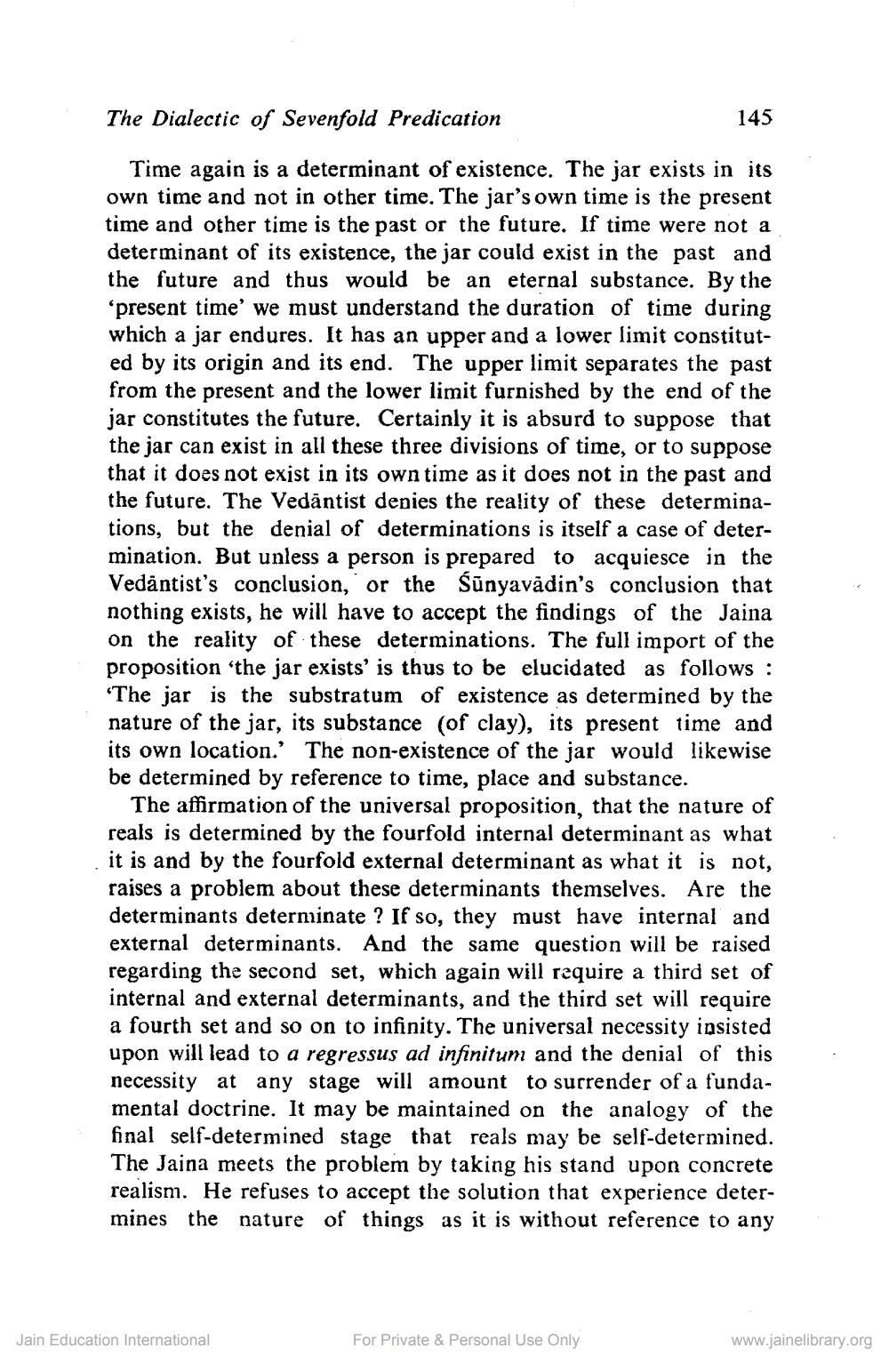________________
The Dialectic of Sevenfold Predication
145
Time again is a determinant of existence. The jar exists in its own time and not in other time. The jar's own time is the present time and other time is the past or the future. If time were not a determinant of its existence, the jar could exist in the past and the future and thus would be an eternal substance. By the ‘present time' we must understand the duration of time during which a jar endures. It has an upper and a lower limit constituted by its origin and its end. The upper limit separates the past from the present and the lower limit furnished by the end of the jar constitutes the future. Certainly it is absurd to suppose that the jar can exist in all these three divisions of time, or to suppose that it does not exist in its own time as it does not in the past and the future. The Vedāntist denies the reality of these determinations, but the denial of determinations is itself a case of determination. But unless a person is prepared to acquiesce in the Vedāntist's conclusion, or the Sünyavādin's conclusion that nothing exists, he will have to accept the findings of the Jaina on the reality of these determinations. The full import of the proposition 'the jar exists' is thus to be elucidated as follows: ‘The jar is the substratum of existence as determined by the nature of the jar, its substance of clay), its present time and its own location. The non-existence of the jar would likewise be determined by reference to time, place and substance.
The affirmation of the universal proposition, that the nature of reals is determined by the fourfold internal determinant as what it is and by the fourfold external determinant as what it is not, raises a problem about these determinants themselves. Are the determinants determinate ? If so, they must have internal and external determinants. And the same question will be raised regarding the second set, which again will require a third set of internal and external determinants, and the third set will require a fourth set and so on to infinity. The universal necessity insisted upon will lead to a regressus ad infinitum and the denial of this necessity at any stage will amount to surrender of a fundamental doctrine. It may be maintained on the analogy of the final self-determined stage that reals may be self-determined. The Jaina meets the problem by taking his stand upon concrete realism. He refuses to accept the solution that experience determines the nature of things as it is without reference to any
Jain Education International
For Private & Personal Use Only
www.jainelibrary.org




